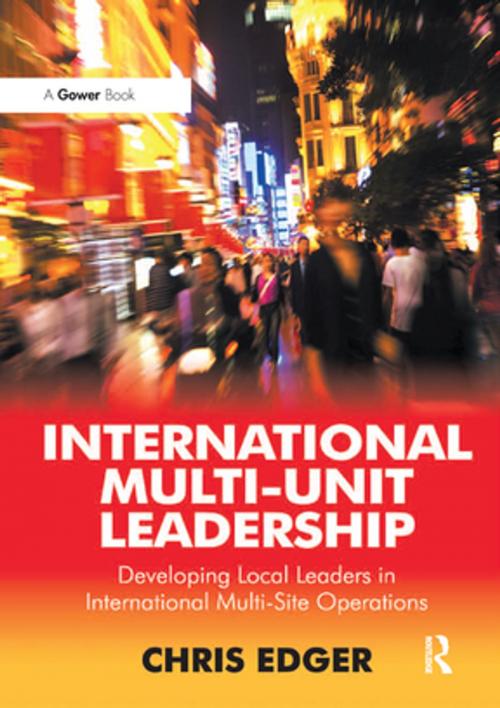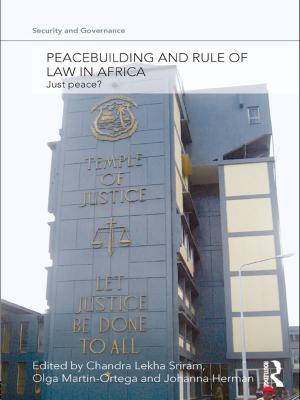International Multi-Unit Leadership
Developing Local Leaders in International Multi-Site Operations
Business & Finance, Management & Leadership, Industrial Management, Leadership| Author: | Chris Edger | ISBN: | 9781317113911 |
| Publisher: | Taylor and Francis | Publication: | April 22, 2016 |
| Imprint: | Routledge | Language: | English |
| Author: | Chris Edger |
| ISBN: | 9781317113911 |
| Publisher: | Taylor and Francis |
| Publication: | April 22, 2016 |
| Imprint: | Routledge |
| Language: | English |
In International Multi-Unit Leadership, Chris Edger builds on his earlier Effective Multi-Unit Leadership. First - showcasing up-to-date, contemporaneous case studies of market-leading international organisations - the book takes a cross-border perspective on leading from the middle in international subsidiaries that are committing significant capital to land-based multi-unit infrastructures. Secondly, it captures the zeitgeist of internationalizing hospitality, retail, service and leisure organizations facing challenges in relation to multi-channel/smart technology spread, divergent national cultures and emergent, imitative local competition. Thirdly, it addresses the conundrum that most subsidiary multi-unit leaders (regional, area and district managers) face, generating commitment amongst their unit managers and team members, whilst coping with their firm’s country of origin-based control and change agendas. Continuing the themes that emerged in his earlier book, particularly around how multi-unit leaders (MULs) and directors are expected to expedite a number of competing and contradictory functions, the author finds that in subsidiary-based international situations, complexity and ambiguity escalates due to 'distance decay' and the level of internal and external contextual turbulence. Based on exemplary case studies, the author examines how high-performance MULs manage paradox and ambiguity within an international context and how organizations can deliver local effectiveness within a strategic framework determined by a policy-making centre hundreds or thousands of miles away. The research and case studies in this book will appeal to managers within international multi-unit enterprises, service directors wishing to train and coach others, students on any of the increasing number of multi-unit management programmes being run in business schools, and academics with an interest in internationalizing service-based enterprises.
In International Multi-Unit Leadership, Chris Edger builds on his earlier Effective Multi-Unit Leadership. First - showcasing up-to-date, contemporaneous case studies of market-leading international organisations - the book takes a cross-border perspective on leading from the middle in international subsidiaries that are committing significant capital to land-based multi-unit infrastructures. Secondly, it captures the zeitgeist of internationalizing hospitality, retail, service and leisure organizations facing challenges in relation to multi-channel/smart technology spread, divergent national cultures and emergent, imitative local competition. Thirdly, it addresses the conundrum that most subsidiary multi-unit leaders (regional, area and district managers) face, generating commitment amongst their unit managers and team members, whilst coping with their firm’s country of origin-based control and change agendas. Continuing the themes that emerged in his earlier book, particularly around how multi-unit leaders (MULs) and directors are expected to expedite a number of competing and contradictory functions, the author finds that in subsidiary-based international situations, complexity and ambiguity escalates due to 'distance decay' and the level of internal and external contextual turbulence. Based on exemplary case studies, the author examines how high-performance MULs manage paradox and ambiguity within an international context and how organizations can deliver local effectiveness within a strategic framework determined by a policy-making centre hundreds or thousands of miles away. The research and case studies in this book will appeal to managers within international multi-unit enterprises, service directors wishing to train and coach others, students on any of the increasing number of multi-unit management programmes being run in business schools, and academics with an interest in internationalizing service-based enterprises.















